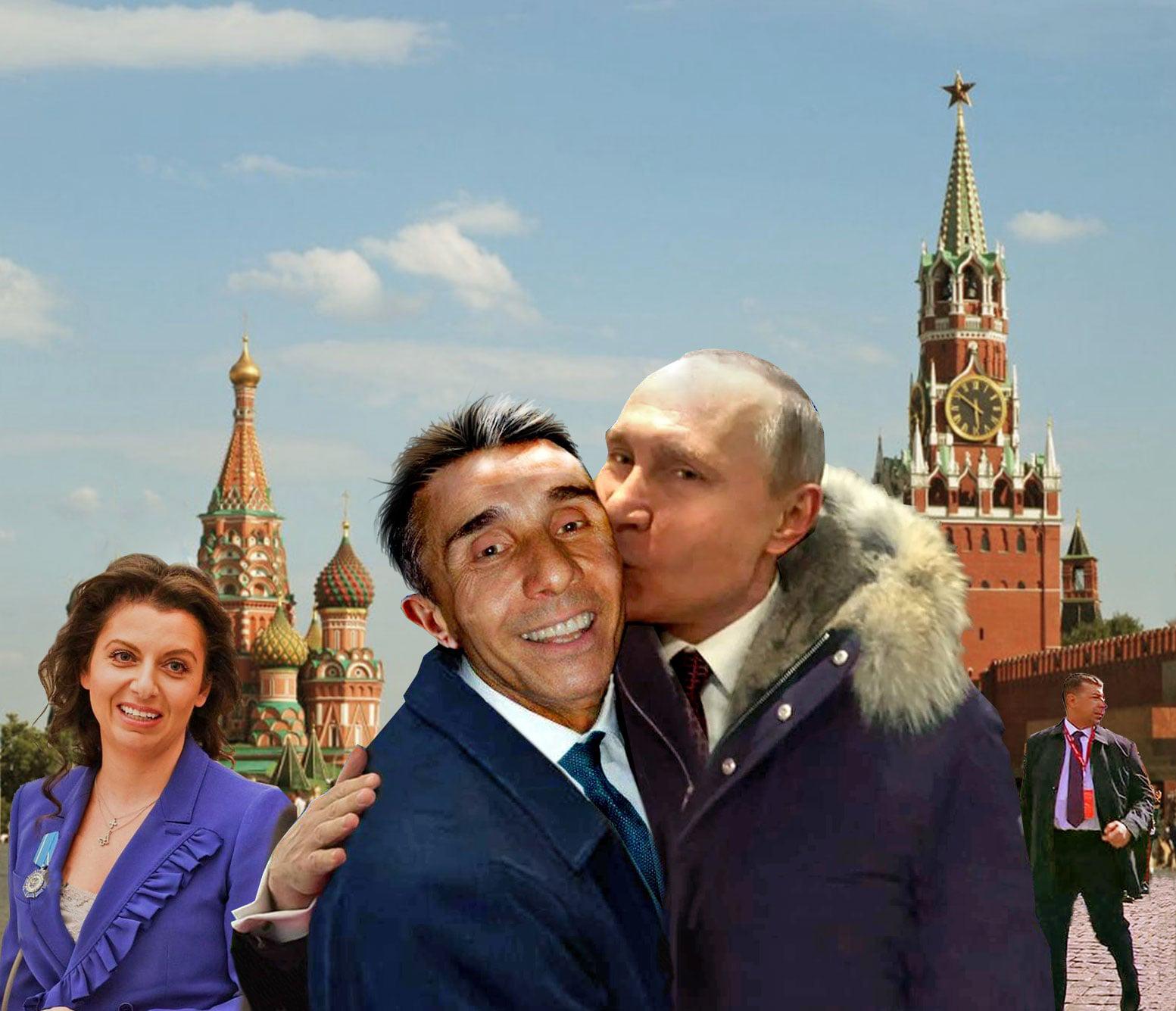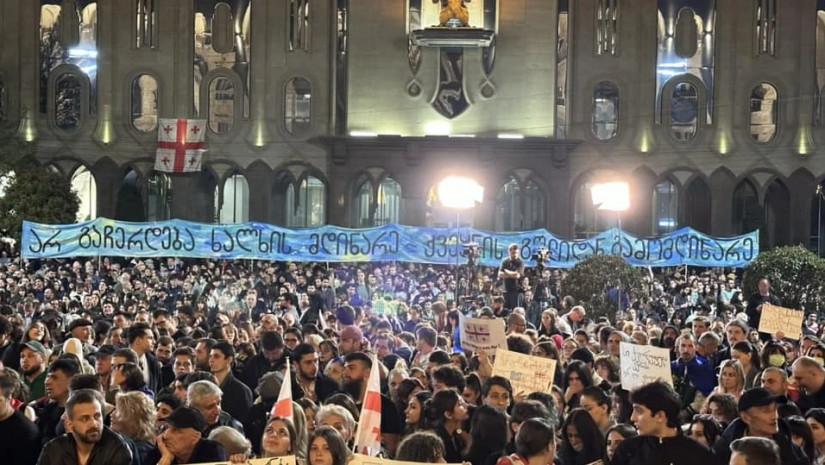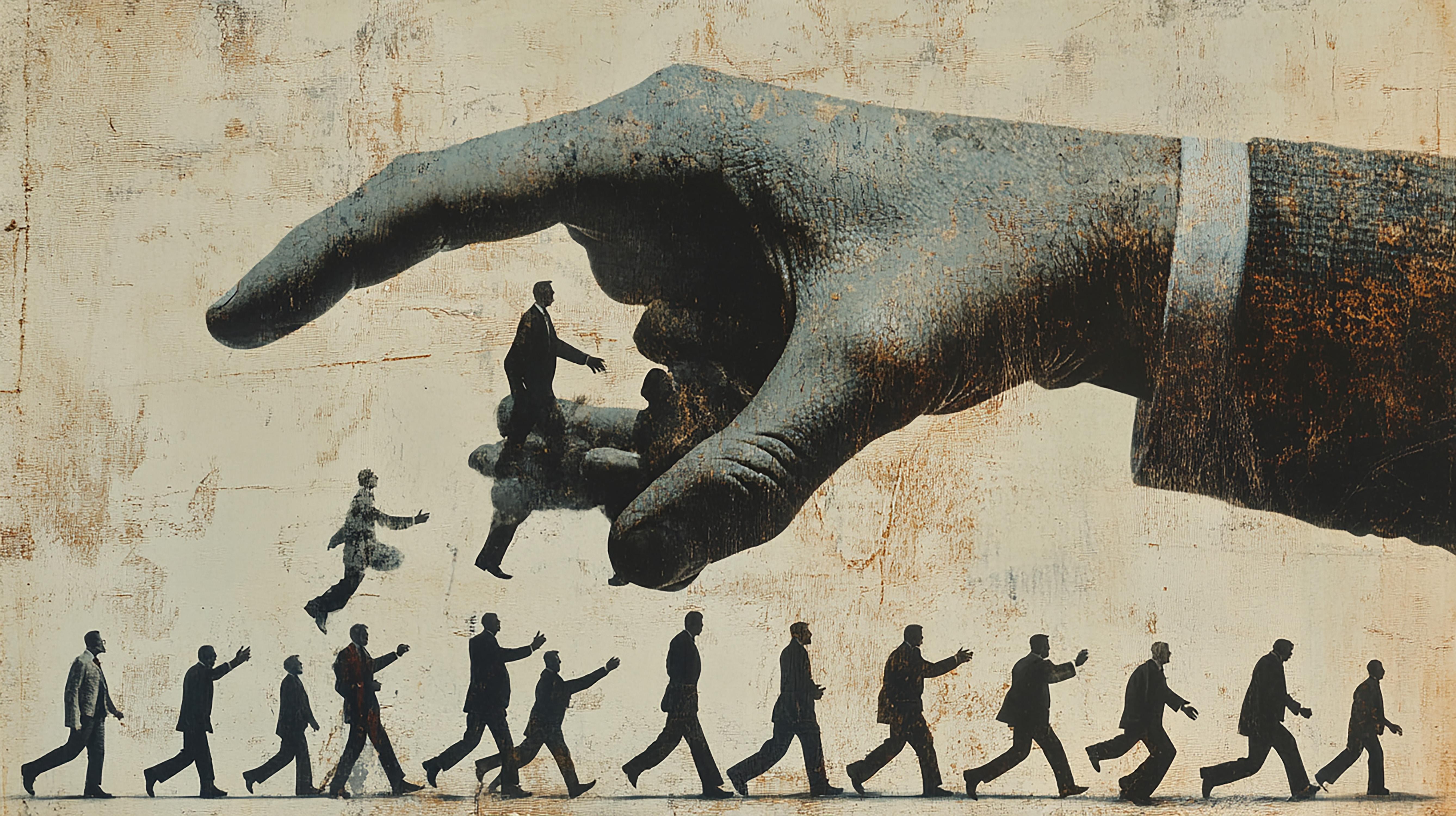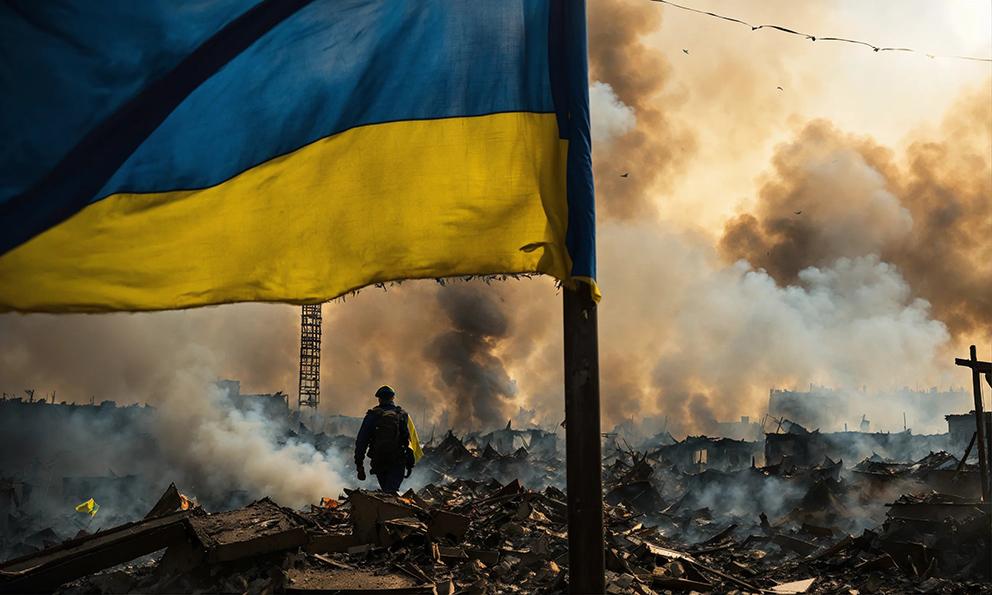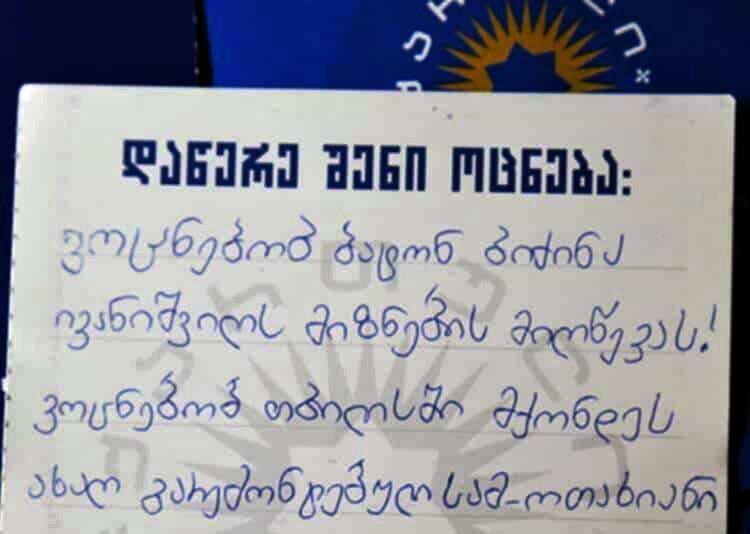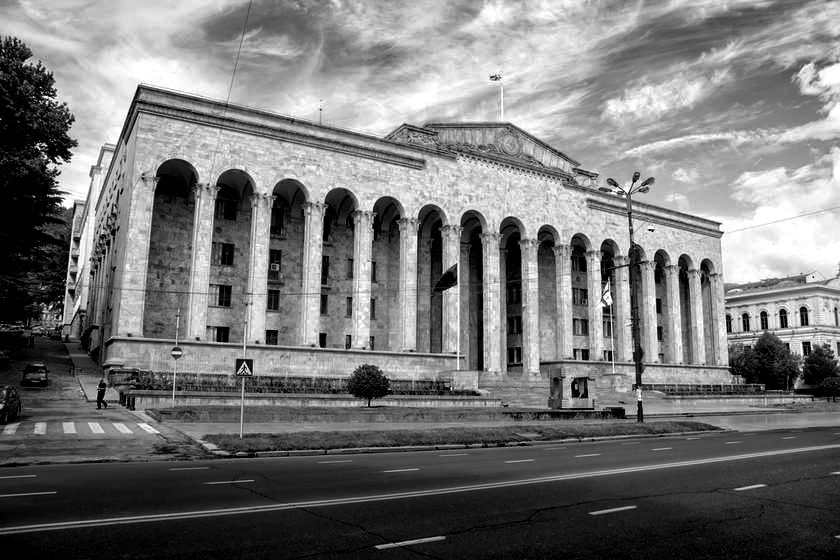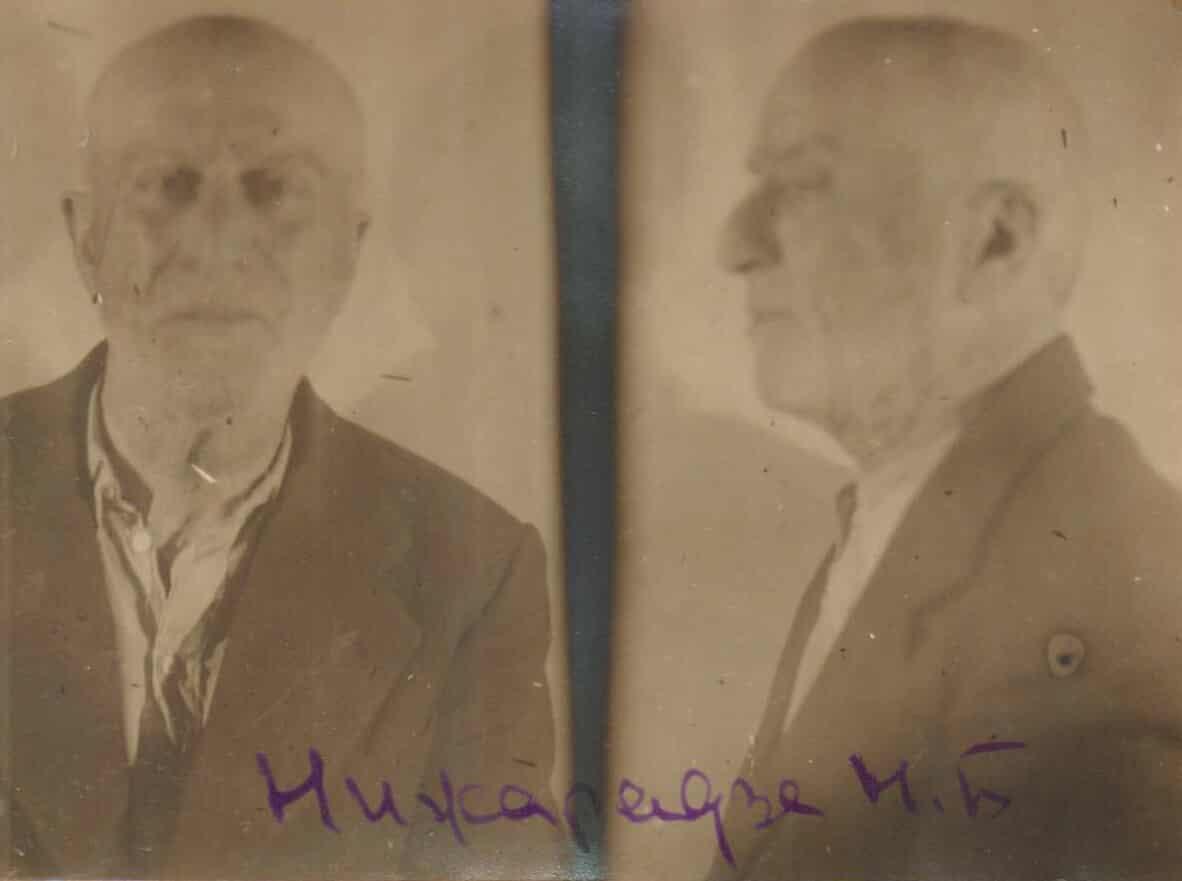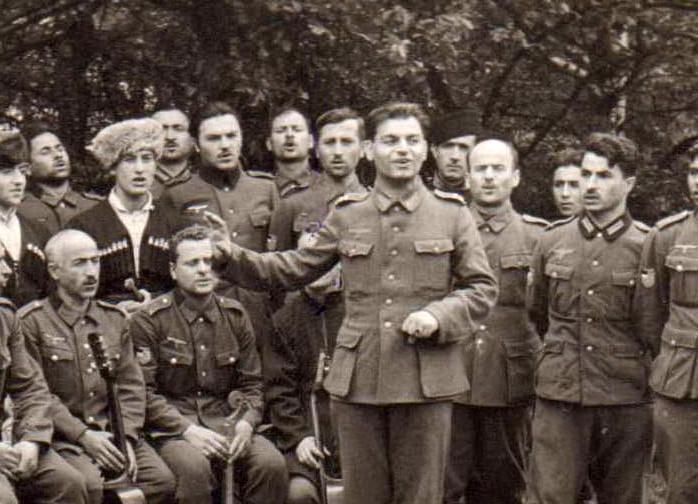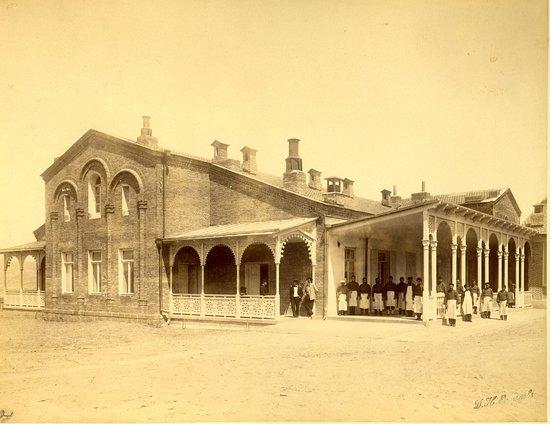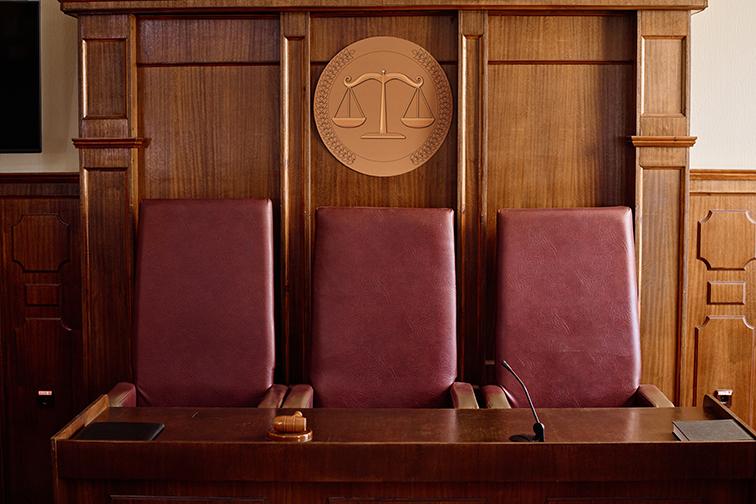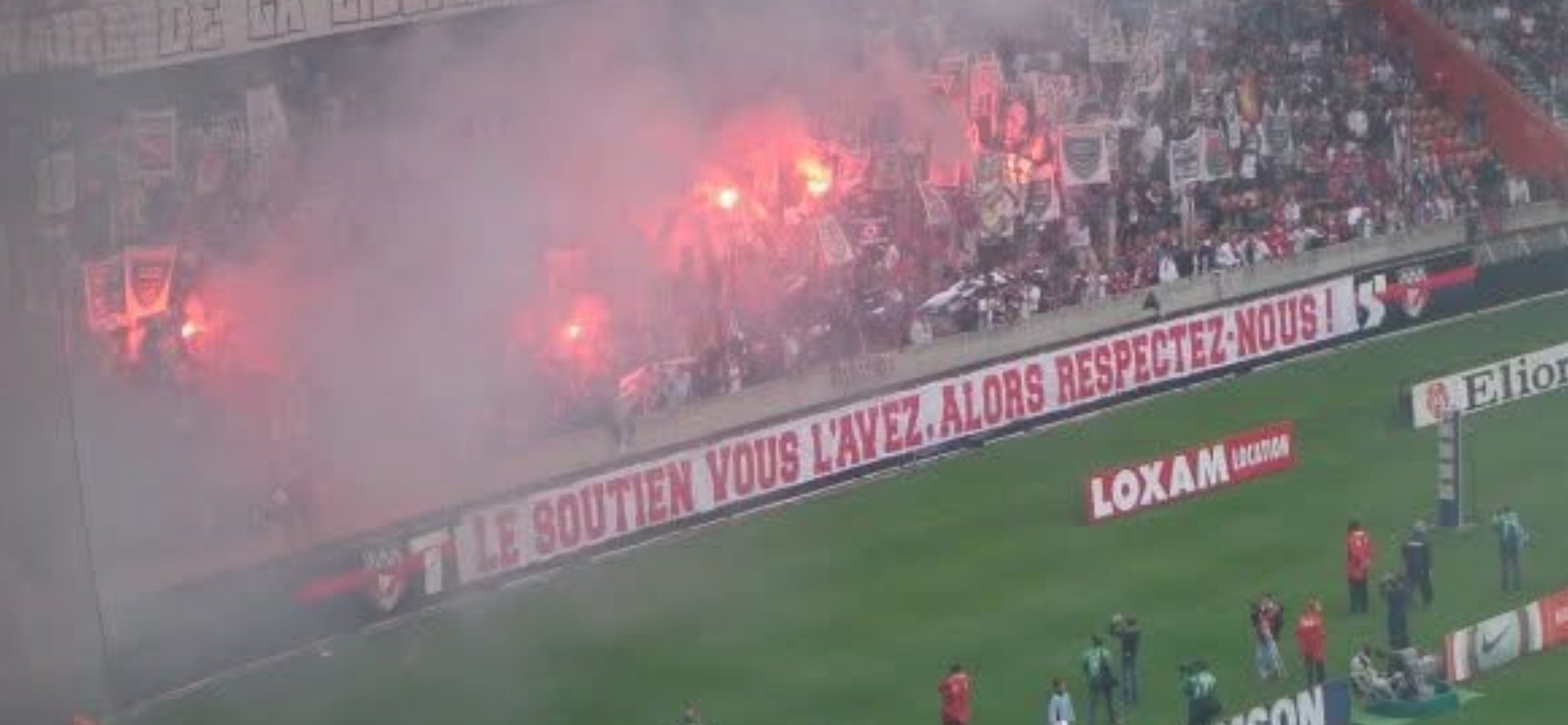Author : Rati Mujiri
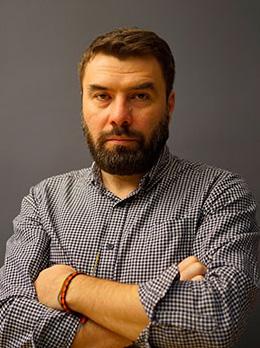
War or peace? When someone asks you such a question, you would undoubtedly be a fool not to choose peace. However, if you don’t immediately ask yourself what peace without freedom means, then it’s clear that someone else will ask, ‘What kind of person are you?!’ Peace without freedom is slavery. When this is not a boringly banal truth and when the society must discuss this issue, how can we avoid the question, ‘What kind of society are we?’
‘A war-torn one,’ the same person will tell you, adding, ‘We’ve had enough of fighting, suffering, and dying.’
And here the slave enters the stage. Not because we haven’t fought, and even less because we haven’t suffered enough, no…
When the biggest war of the twenty-first century started, for the first forty-eight hours I had no idea whether I would survive or perish in the land of Ukraine. As it turned out later, I survived. However, before I survived, and in principle, before and after that, I had rubbed in all the mud of war more than once, and accordingly, I know exactly that anyone who has experienced war in their own skin and has saved the person within themselves would never stoop to speculation with war. They would never open a wound of a war-torn society, which seems superficially healed, but is rotten in the depths and smells of decaying corpse. They would never stoop to it because they know exactly what the disgusting reality of war is like.
Only a slave can stoop to speculation with war, and even more so stoop it with a society that has experienced was. The exalted slave. He can, to the extent that he has a complex about the master’s strength, be particularly cruel. He is cruel because he has been given power precisely for this cruelty. He has been given it temporarily and unequivocally by the master. He is accountable to the source of this power and, therefore, must oppress everyone around him.
The exalted slave sees everyone around him as a slave, he cannot imagine being a human being, for him everyone who is not his master is a slave and that is why he despises them, the others. He despises them because he does not see himself among them and rightly so. He cannot allow an exception, he cannot allow anyone to survive. He must also subjugate others to slavery. This oppression is the guarantee of his temporary power. Oppression is a toy in the hands of the exalted slave, which makes him feel equal to the master.
This is the nature of the Ivanishvili regime today. A slave elevated to power by his Russian master, who must oppress in order to maintain it.
He began his reign of oppression in disguise.
The mask he wore was that of a liberator. It doesn’t matter what he was liberating people from. The important thing was that he called himself a ‘liberator’.
While the war-torn society, exhausted and deceived, basked in the illusion of a liberating messiah, the former slave—now elevated—betrayed it to the very enemy who was, at the same time, his master. He delivered into hostile hands the most sensitive assets of that society: lists of special forces veterans from the Kodori operation, registers of Georgian intelligence officers operating in the occupied territories, detailed sketches of Tbilisi’s defensive fortifications, and even secured the release of individuals imprisoned on charges of Russian espionage. He facilitated the release of the master’s agents, yet never once exposed a single agent of that same enemy-master.
This went on for years.
The emerged slave continued to dig out the foundation of national security, and he even went so far as to sink the Anaklia port. The port around which the founding of a city was even planned, and if not for the slave’s rise to power as the ruler of a war-torn society, it would have been built and developed a long time ago.
‘What do the Americans have to do in the Black Sea?!’—this is the question posed by the chief master of the newly ascended slaves. Yet the answer is self-evident: the ‘American Anaklia’ project, a deep-sea port on the Black Sea, is squarely in Georgia’s national interest and needs no further justification. But that is only part of the story. While they publicly and ostentatiously refused to move forward with the Anaklia port—citing alleged political or economic disagreements, and even hinting that it might still be built, though not by American hands—behind closed doors they also blocked the renovation of the Vaziani military airfield. Such a renovation would have amounted, in effect, to the construction of a completely new strategic facility.
There was a chance to build a modern air base on the multi-component Vaziani military base, where there is now a useless airfield. The general of the United States Transportation Command, Stephen Lyons, personally introduced this idea to Prime Minister Bakhtadze, and he was also delighted, but this initiative was followed by hysteria from the Kremlin and this project also failed.
This went on for years, and when Russia invaded Ukraine, its slaves were forced to take off all their masks, because the master already needed open support.
Since February 24, 2022, the regime of ascended slaves has been forced to take off its pro-Western mask; it needed something to justify its cruelty and oppressive nature, and it stooped to what, as I mentioned at the beginning, a human being would not stoop to—it opened the superficially healed wound of a war-torn society and scared it with another war. It directly blamed the collective West for the 2008 Russian invasion of Georgia, wrapping it up sometimes as a ‘global war party’ and sometimes as a ‘deep state,’ and sold the surrender to the enemy Russia without a war as a policy of peace.
‘And because the wounds of war stink of decaying carrion, festering in their depths, part of the war-torn society was intimidated. Those who weren’t intimidated had their elections stolen and the regime became a Russian stronghold in the region.
If you want peace, prepare for war—haven’t these Putin’s slaves, heard at least this?!
What do states do when faced with the threat of war? They prepare their armies, begin to arm themselves, and develop technology. If they do not have sufficient resources themselves, they seek and find strong allies.
Who does the aggressor attack? Those who are weak, defenceless, and easy to defeat.
How is the emerging military regime behaving? It is weakening the country, losing allies, and becoming easy prey for Russia.
Now that Western civilization, almost suffocated by Russian gas, has awakened and is making efforts to prevent a repeat of this, the emerged slave is furious: how dare Europe arm itself, how dare it increase its military budget, how dare it show the will to resist our master?
It’s not just Central Europe, and the Euro-Atlantic space in general, that is preparing to defend itself against Russia; everyone around is. Moldova is firmly continuing to take its place under the Western security umbrella. Azerbaijan has a Turkish lobby, and Turkey is a NATO member, so Azerbaijan has long since emerged from the shadow of the Kremlin. The people’s leader Pashinyan, albeit with great losses, is still managing to reach a safe place, and it seems that Armenia has also irreversibly set foot on the Western path. As for Ukraine, which is stubbornly paving its European way at the cost of its own blood, we will not dwell on that.
Gas, as we know, is a substance that relentlessly fills every empty space. Against this backdrop, the comfort and self-interest of the elevated slaves are hollowing out Georgia’s sovereignty, dismantling national security, and leaving the country without allies. If this course continues, the day is not far when our war-torn society—so deliberately and systematically gutted—will itself become that very empty space, ready to be filled in an instant by Russian gas. And gas, as we know, suffocates indiscriminately: both the slave and the one who survived slavery.
